- Home
- Keith Douglass
Enemies c-15
Enemies c-15 Read online
Enemies
( Carrier - 15 )
Keith Douglass
When tensions rise between Greece and the breakaway republic of Macedonia, "Tombstone" Magruder and Carrier Battle Group Fourteen are sent to maintain the peace-but wind up facing a rogue Greek officer who has decided to end the conflict with open war.
Keith Douglass
Enemies
ONE
Wednesday, 3 May
Tomcat 101
The Greece/Macedonia border
21000 feet
2300 local (GMT –2)
Greek Captain Antipodes Spiros flipped his American-built Tomcat into a tight barrel roll. He tilted his head back, braced against the ejection seat and stared up through the canopy above — no, below — no, above — hell, it was outside, that was all that mattered. Swaths of green earth that ran between ancient ruins and brown craggy low hills swapped places with a sky so blue it hurt his eyes. Spiros squinted his eyes until the colors ran together, until everything outside his cockpit dissolved into streamers of color and light.
“Enough!” his backseater howled.
Spiros ignored him, concentrating on the delightfully befuddled feeling creeping into his inner ear. A few more rolls and he’d be… there. It hit him all at once, the dizzying disorientation as the fluid in his ears roiled and bubbled against the delicate aural bones. He switched his gaze to the instruments, thoroughly disoriented, and eased the aircraft back into level flight.
Rolling, rolling, his mind insisted. Still turning, banking now, descending, ascending. A series of confused and inconsistent messages, each one increasingly urgent, each one dead wrong. Spiros watched the artificial horizon, the altimeter and accelerometer, and let his instruments convince him that he was in level flight.
“Why do you do this?” his backseater demanded. “Every time, every flight. If I vomit, you will clean it. Not me.”
Spiros chuckled. Irritating his backseater was just an added bonus. He could have explained, he supposed. It wouldn’t have hurt him to do so, nor would it have kept him from rolling himself sick at some point during every flight. Little did his backseater know that it was as much to keep his whining guy-in-back safe as it was to amuse a bored pilot.
Barreling his brains out came under the heading of preventive training. It was a habit he’d adopted during Tomcat pipeline at an American air base when a close friend of his had inadvertently stalled out, lost control of his aircraft in a flat spin, and been unable to recover. Spiros had listened over tactical as Kapi had screamed out his corrective actions, sobbing and wailing, damning the horizon that rotated around him and defied his Kapi’s best efforts to stabilize his aircraft. Finally, the backseater had punched them out, but they’d been too close to the ground. Neither had survived.
During the solemn debrief that’d followed, the IP — instructor-pilot — had been brutal in his conclusions.
“He got fixed on the horizon. His instruments were telling him the truth, but once you get disoriented, you can convince yourself real easily that the instruments are wrong. You start going with what you see instead of what the aircraft is telling you. Then you lose the bubble. Then you make an uncontrolled descent to the ground.” The IP had hammered out the narrative in a hard Texas twang, his voice a monotone. He’d stopped then, stared at the deadly quiet class.
“Every man in here believes it won’t happen to him. Well, it will. At some point, you’re going to get disoriented. You might have a head cold, an inner ear infection, or you might just be doing your damnedest to get away from some MiG on your ass. Whatever the cause, you’re going to lose it. If you’re not prepared for it, if you don’t believe what your instruments are telling you, you’re going to die just as surely as if you’d gotten a Sidewinder up your ass.”
In the days after that, the IPs had hit them particularly hard with in-flight emergencies, spins, loss of power, everything they’d been over in the preceding fourteen weeks. Haunted by the memories of Kapi’s last transmission, Spiros had sworn that he’d never, ever forget the lesson.
Hence the barrel rolls, the spins, constant aerobatics. By now he’d learned how to recognize when he was disoriented, how to rely on the instruments. And he’d come to believe that whatever else might happened to him while he was a pilot, he wouldn’t kill himself and his backseater by losing the bubble.
Mercifully, the RIO was too busy trying not to puke to continue berating him. If Spiros ignored the gagging sound, he could almost believe he was in a single-seater aircraft, alone in the sky, unencumbered by a wingman or lumbering transport to escort, with a straightforward mission to execute, one that required little more than what he loved to do best — flying.
Even the surveillance center was leaving him alone tonight. While the ground radar site was Greece’s first line of defense in the ongoing conflict with Macedonia, it could be a real pain in the ass for a pilot, particularly if the ground control intercept officer got nervous over a few barrel rolls. From the way they complained, you’d think that there was no need for airborne patrols.
But while the GCI’s long-range radar covered more sky than the radar mounted in this export model F-14 Tomcat, it had one major disadvantage. Contacts showed up as green-painted lozenges on scope, accompanied by an IFF identification if they were carrying the proper transponder. It might even break with a mode four IFF code, indicating that it was a friendly aircraft, a military one at that.
But even the finest radar could not put eyes on target, could not check the status of a wing loadout nor verify that a mode four aircraft was not actually an enemy fighter. While mode four was supposedly an infallible method of telling friends from foe, there were still instances in which daily crypto codes had been stolen and given to the other side.
Nowhere was the problem of fraternal treason more difficult than between Greece and Macedonia. The two countries were brothers, bound by blood ties stretching back thousands of centuries, into the mists of time before even Alexander the Great. In 1991, a misguided United Nations had recognized a small landlocked area the size of Belgium as the Republic of Macedonia. Spiros snorted in disgust. Macedonia was part of Greece, no matter how she manipulated the sentiments of foreign nations into thinking otherwise, no matter how the land had been apportioned following the world war. Even the name — Macedonia — belonged to Greece, not to some part of the artificial state that had been called Yugoslavia.
Why couldn’t they at least call it Skopja, the correct ancient name for the region? Or some name that incorporated Macedonia? That had been the Greek government’s latest capitulation in the face of overwhelming international pressure.
Personally, Spiros found that as much of an insult as calling it the Republic of Macedonia. No, it should go by its proper name, Skopje.
“Fifteen minutes,” his backseater called out, evidently now sufficiently recovered to resume his tiresome reminders. As if the fuel gauge were not mounted right in front of Spiros, as if the pilot could not see the seven-day clock ticking off the minutes. He knew they had fifteen minutes — fourteen now — before they commenced their return to base. He’d given himself just enough time to completely recover from the barrel rolls before he’d be on final approach. Spiros clicked his mike twice in acknowledgment and returned to his train of thought.
Not that it was entitled to independence anyway. Aside from the fact that it was historically wrong, it set a dangerous precedent. A large portion of the Greek coast on the Aegean was referred to as Greek Macedonia. This upstart mongrel country would soon make a move on that as well — indeed, they’d started already, claiming that Greece was abusing its ethnic Macedonian citizens.
The whole conflict had exploded when the smaller nations of the UN, each with its own independent agenda ai
med at ensuring the rights of smaller countries, had began funneling weapons and aircraft into Macedonia. A few fighter aircraft, some anti-air batteries, and within a few months the renegades had staged a threatening presence on the border along Greek Macedonia. Access to the Aegean Sea, that’s what they wanted. And these patrols along the border were designed to ensure that the rebels didn’t get it.
As if a pilot ought to have to care about history. All Spiros wanted to do was fly, strap this sweet aircraft onto his ass once or twice a day and slip the surly bonds of earth. There were other people whose job it was to worry about history.
The general, for instance.
Spiros slid the Tomcat into a tight, hard turn, watching the stars pirouette above him. Yes, the general understood history. But in fact, if the truth be known, Spiros suspected that the general was more interested in making history than understanding it.
“Tomcat 101, requests a status report.” The voice of the ground intercept controller interrupted Spiros’s train of thought. He sighed and toggled the microphone on. Always, there was someone who wanted to interrupt his moments of communing with the open sky.
“Ground, 101. All systems normal. No contacts.” Spiros waited, knowing that the inquiry had been merely a preliminary to a request from the controller.
“Roger, 101. Request you vector 230 at best speed to intercept contact designated possible hostile,” the controller said. “Ground control radar to the north holds contact and will provide locating data.”
Spiros perked up. Actual work to do — now that would be a change of pace. After weeks of chasing radar ghosts or some flight of fancy on the part of the ground controller, a real contact, even if it only proved to be a commercial air contact off course, would be worthwhile.
He shoved the throttles forward to full military power and put the Tomcat into a gentle climb. Altitude was always a good thing to have plenty of, and in this case, it would increase his radar range. “How far away is it?” he asked, studying his own radar scope. No sign of anything so far, but that didn’t mean it wasn’t there. This particular Tomcat’s radar set was notoriously unreliable, as bad as the rag tag airframes the Macedonians flew.
“Sixty miles,” Ground replied. “Contact is on heading 050 making 80 knots over ground.”
Eighty knots. Not a fighter aircraft, then. Probably a helicopter, maybe a corporate or news camera team that had decided there was no need to file a flight plan ahead of time. Or maybe a Macedonian combat helo, making one of its rare nighttime forays into Greece, dropping off provocateurs and spies. Not that they flew that often at night… no, probably a news helo. ACN had established a particularly visible presence along the border, and seemed to feel that it had the right to fly anywhere and anytime it chose, with no regard for proper flight plans.
Well, they would learn differently tonight. The entire span of airspace along the border between Skopje and Greece was tightly controlled, ostensibly as a matter of safety of flight. In reality, everyone knew that the air corridor control measures were designed to prevent freedom fighters from reinforcing and to stifle the little economic activity that there was in Macedonia. Everything had to be routed through official Greek channels, absolutely everything.
“Roger, ground. 101, vectoring to intercept now.” Spiro toggled his radar control selector to the widest range possible, waiting for his first glimpse of the helicopter.
Tavista Air Base, northern Greece
2310 local (GMT –2)
Two hundred miles away, at the ground facility in Greece, General Dimitri Arkady was weighing the possibilities. In all probability, the helicopter contact — and that’s what it appeared to be, based on its speed — was either an international news team or part of UN forces in the area. Both sets of intruders were as unwelcome as the plague.
Why was it so difficult for other countries in the world to understand the nature of the problem with Macedonia? Surely many others of them had ethnic enclaves within their own nations, small communities of zealots that were at odds with most of the people? It was an internal matter, purely internal. A Greek problem that could be solved by Greeks without outside intervention. No edict from the UN could change that.
He sighed, contemplating the problem of busybodies on the international scene. No sooner had the first news photos hit the wires than the United Nations had begun passing resolutions. Each one was aimed at creating the illusion that the UN had power to force the parties to a settlement, that the collective wisdom of the states of the world could solve this problem of nationalism.
No matter that many of them were experiencing similar problems within their own borders. In fact, that was all the more incentive for other nations to advocate a UN presence in Greece. With the meager UN forces tied up meddling in Greek affairs, there was less chance that they’d be dispatched to deal with other problems. Like the Kurds in Toronto. Like the Indians and Mexico. Like Taiwan and China.
No, instead they were in Greece, ranged along the border between Macedonia and the rest of the country, spending the UN member — nation contributions on a problem they couldn’t solve.
And wasn’t that the problem that most often faced the UN these days? There were no global threats, not unless you counted China, still the sleeping giant, barely flexing her muscles in the Pacific Rim now. Or the United States, although the latter was often shocked to discover that the rest of the world regarded her as a threat on par with the former Soviet Union.
No, there were truly no world threats. Thus, to justify their own existence, the world’s militaries tried to insert themselves in places that they didn’t belong. Yes, there was a place for the United Nations, when world powers such as Germany or the Soviet Union threatened with overwhelming force to destabilize the rest of the world, or when states disintegrated into warring nations and factions. Then, perhaps, an outside adjudicator of the claims and merits of each side might be needed.
But not for a matter such as this. Not for internal matters, no.
And particularly not for Greece.
“Make certain the pilot obtains a visual identification on this contact,” General Arkady said. “In fact, have him execute a close pass on the contact. A very close pass. It’s time we made our displeasure evident to these intruders.” He glanced over at the ground controller to make sure he understood what the general intended.
The ground controller nodded. He picked up the microphone and called 101.
Tomcat 101
The Greece/Macedonia border
21000 feet
2315 local (GMT –2)
Now this was more like it. Not only VID, but a fly-by as well. Ah yes, the general’s intent was perfectly clear, at least to Spiros. Time to shake things up a little bit with something besides aerobatics. At least this would give his backseater something to do besides whine and complain.
Spiros clicked the mike twice to acknowledge the orders. He could see the helicopter now, a faint blur on the horizon. Ungainly, a collection of flying parts that had no business being airborne together.
Well, he’d show that pilot just what it meant to be an aviator. He made a slight correction in the course, flying by visual rather than radar now, and nudged the Tomcat into afterburner.
ACN Helo 7
642 feet
2318 local (GMT –2)
ACN correspondent Pamela Drake listened to the argument raging within the helicopter. Everyone was shouting, not because emotions were running high, but because it was the only way to be heard over the distinctive sound of the helicopter blades. So far, she’d heard the argument cycle through four familiar arguments, and she was waiting for the fifth one to surface on schedule.
It wasn’t that she had no interest in the argument, not at all. It was just that she’d been through it so many times, had heard both sides of each question repeatedly thrashed out, and was tired of it. In the end, she had no real opinion on the conflict or the merits of the arguments between Macedonia and Greece. There were merits to both sides,
and problems with each position as well.
In the end, it didn’t matter. Her job was to report the news, not make it.
Although, she had to admit there’d been times in the not-so-distant past when it seemed that she was part of the story rather than her network’s most aggressive, on-the-spot international reporter. Like in Cuba, where she’d been taken hostage by the military in revolt. And Turkey, were she’d been the one to spot the first signs of the subterfuge by Russia. And other times as well, too many to count.
She sighed, shifted in her seat, and listened to the other two correspondents move on to the next point. They were glancing at her occasionally, as though wondering why she did not join one side or the other. Hell, even the camera guy had an opinion on the conflict, for what it was worth.
“Creating a state requires the consent of the people,” Brett Fallon said. He stabbed his finger at Mike Carne, the French reporter along with them. “You study political science — you at least ought to understand that.”
Mike shook his head. “It’s not so simple as that. Geography drives a lot of it, you know. What works in the United States, with the U.S. being so isolated from the rest of the world by two oceans, doesn’t work in Europe. Here, nations overlap, history blurs the boundaries. You’ll never get the consent you need to make a state out of a nation here, because the nations are too overlapped. And in the end, being a state is about a nation controlling it’s own land. You people think the two terms, nation and state, are synonymous.”
Brett’s voice cycled a notch higher. “Nationalism. Nothing more than leftover tribal instincts.”
“It runs deeper than that. Study your cultural anthropology for a change instead of just current events,” Mike argued. “People have always formed into clans, groups, based on things that they have in common. They are fundamental things, beliefs that run so deep that no externally imposed concept of statehood can overcome them. Look at Northern Ireland and England.”

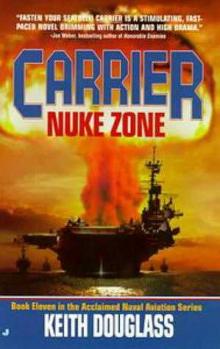 Nuke Zone c-11
Nuke Zone c-11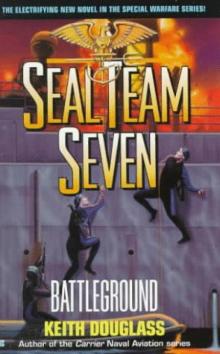 Seal Team Seven 6 - Battleground
Seal Team Seven 6 - Battleground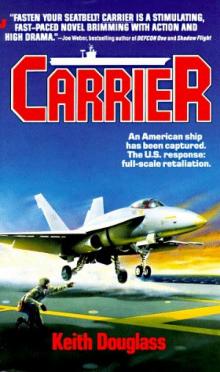 Carrier c-1
Carrier c-1 Island Warriors c-18
Island Warriors c-18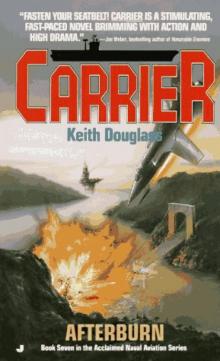 Afterburn c-7
Afterburn c-7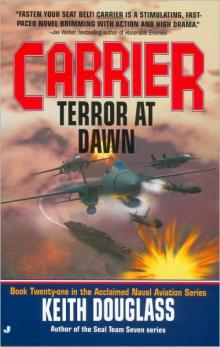 Terror At Dawn c-21
Terror At Dawn c-21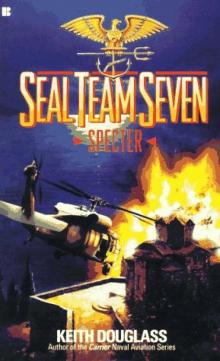 Specter sts-2
Specter sts-2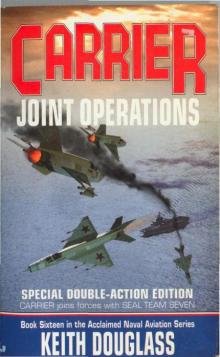 Joint Operations c-16
Joint Operations c-16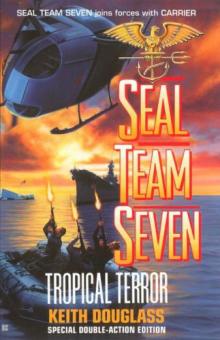 Tropical Terror sts-12
Tropical Terror sts-12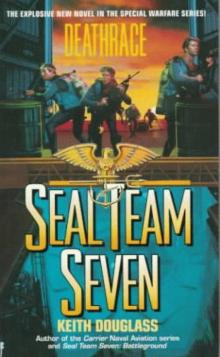 Seal Team Seven 7 - Deathrace
Seal Team Seven 7 - Deathrace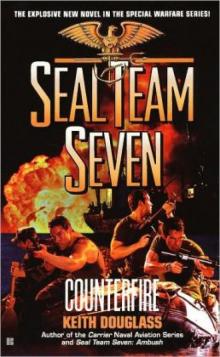 Counterfire sts-16
Counterfire sts-16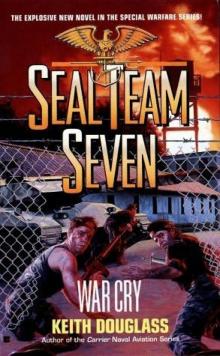 War Cry sts-9
War Cry sts-9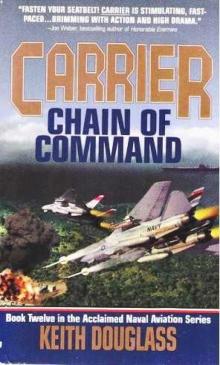 Chain of Command c-12
Chain of Command c-12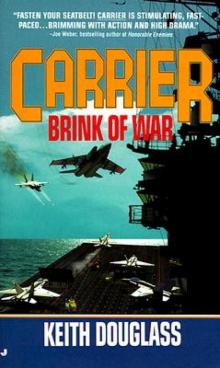 Brink of War c-13
Brink of War c-13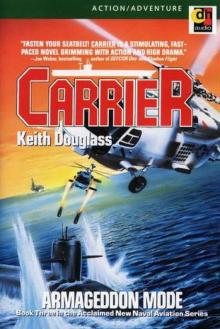 Armageddon Mode c-3
Armageddon Mode c-3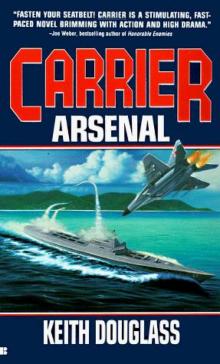 Arsenal c-10
Arsenal c-10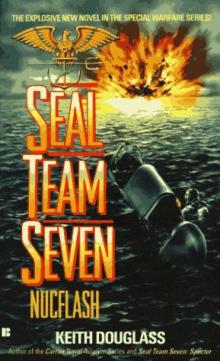 Nucflash sts-3
Nucflash sts-3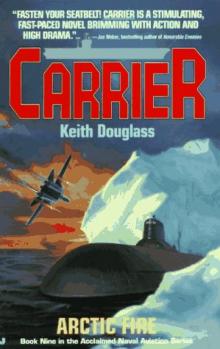 Arctic Fire c-9
Arctic Fire c-9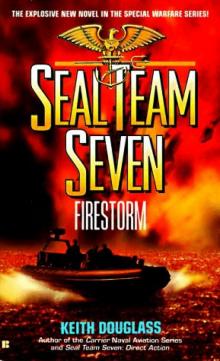 Firestorm sts-5
Firestorm sts-5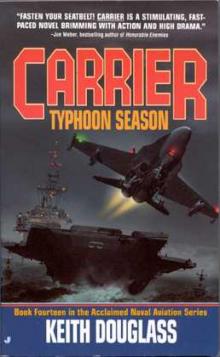 Typhoon Season c-14
Typhoon Season c-14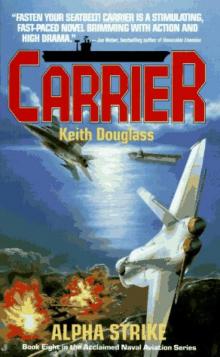 Alpha Strike c-8
Alpha Strike c-8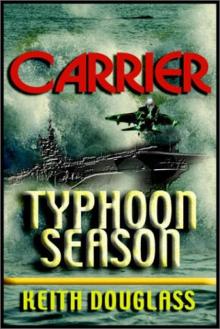 Carrier 14 - TYPHOON SEASON
Carrier 14 - TYPHOON SEASON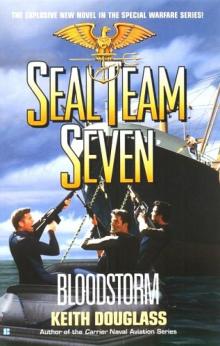 Bloodstorm sts-13
Bloodstorm sts-13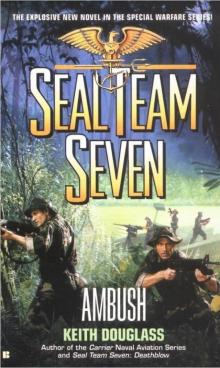 Ambush sts-15
Ambush sts-15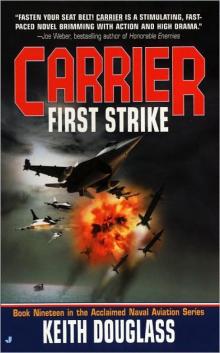 First Strike c-19
First Strike c-19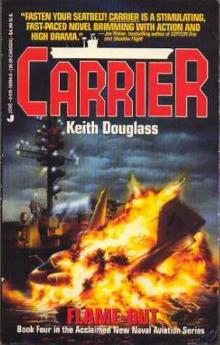 Flame Out c-4
Flame Out c-4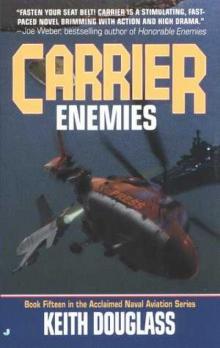 Enemies c-15
Enemies c-15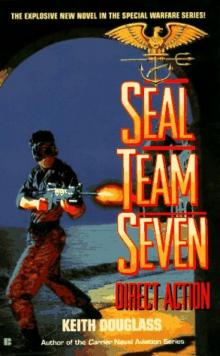 Seal Team Seven 04 - Direct Action
Seal Team Seven 04 - Direct Action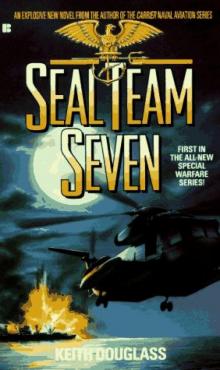 Seal Team Seven 01 - Seal Team Seven
Seal Team Seven 01 - Seal Team Seven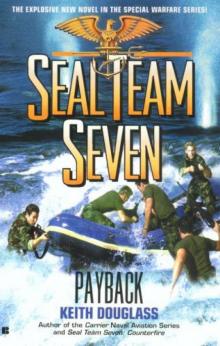 Payback sts-17
Payback sts-17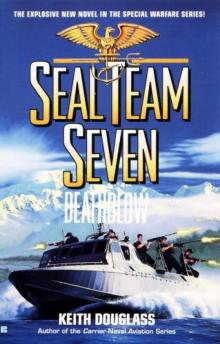 Death Blow sts-14
Death Blow sts-14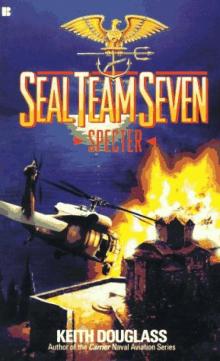 Seal Team Seven 02 - Spector
Seal Team Seven 02 - Spector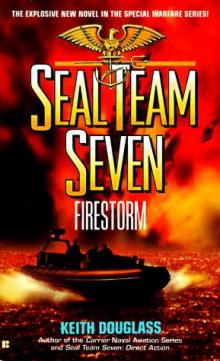 Seal Team Seven 5 - Firestorm
Seal Team Seven 5 - Firestorm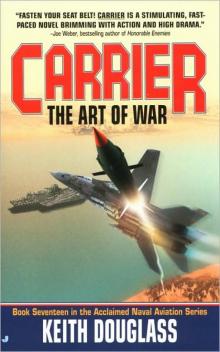 The Art of War c-17
The Art of War c-17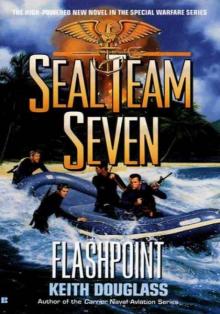 Flashpoint sts-11
Flashpoint sts-11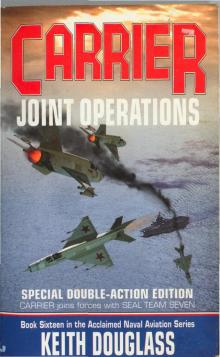 Carrier - Joint Operation Book 16
Carrier - Joint Operation Book 16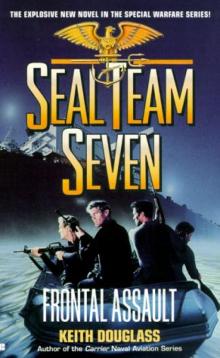 Frontal Assault sts-10
Frontal Assault sts-10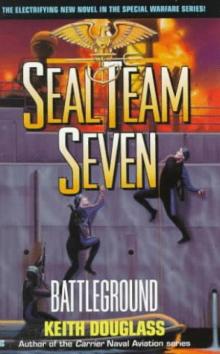 Battleground sts-6
Battleground sts-6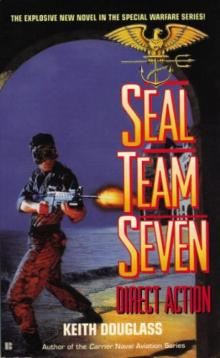 Direct Action sts-4
Direct Action sts-4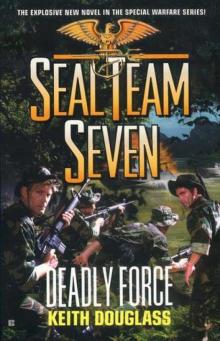 Deadly Force sts-18
Deadly Force sts-18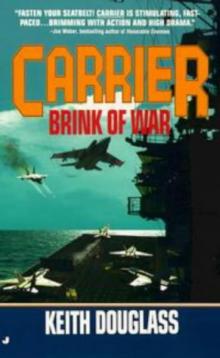 Carrier 13 - Brink of War
Carrier 13 - Brink of War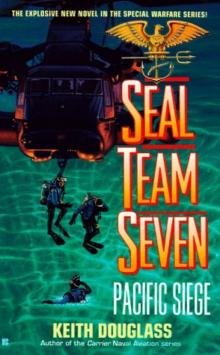 Pacific Siege sts-8
Pacific Siege sts-8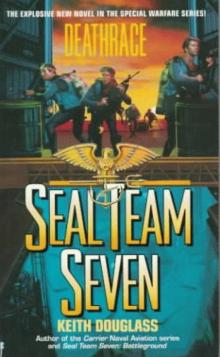 Deathrace sts-7
Deathrace sts-7